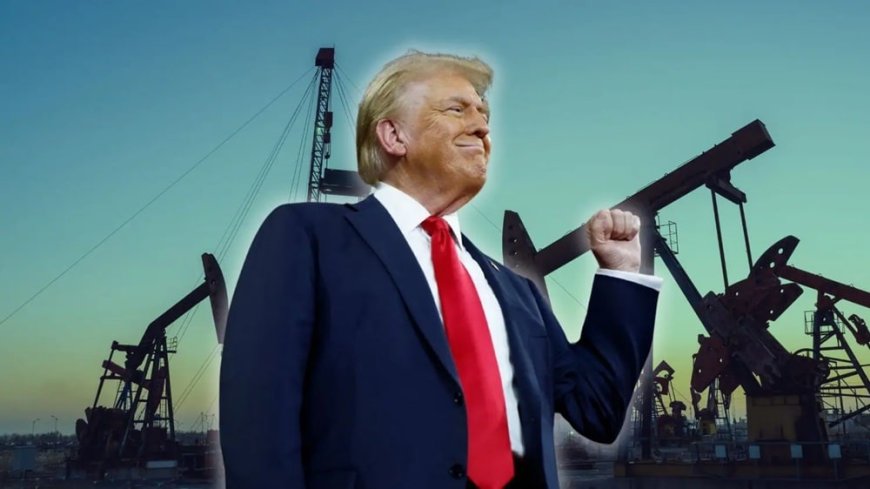Trump Announces Deal to Develop Pakistan’s ‘Massive’ Oil Reserves
U.S. President Donald Trump announced that the United States and Pakistan have reached an agreement on trade and energy collaboration to develop Pakistan’s massive oil reserves. While details remain sparse, Trump stated that an American oil company would soon be selected to lead the project—and hinted that Pakistan might eventually export oil to India.

U.S. President Donald Trump announced that the United States and Pakistan have reached an agreement on trade and energy collaboration to develop Pakistan’s massive oil reserves. While details remain sparse, Trump stated that an American oil company would soon be selected to lead the project—and hinted that Pakistan might eventually export oil to India. The move comes in tandem with a 25% tariff and additional penalty imposed on Indian goods just hours earlier—a clear geopolitical overture in regional economic strategy.
-
Deal Details: U.S. and Pakistan to jointly develop Pakistan’s oil reserves; American company to lead exploration and development.
-
Potential India Exports: Trump teased that Pakistan might one day sell oil to India.
-
Tariff Developments: Announcement followed the imposition of a 25% tariff on Indian imports, including penalties related to Russia trade ties.
Pakistani Acknowledgment: Pakistan’s Foreign Minister Ishaq Dar confirmed the “deal concluded” status, while the Finance Minister highlighted expected export tariff reductions.
Trade & Diplomatic Context
-
The announcement comes amid sharply escalated U.S.–India trade tensions, with tariffs aimed at influencing India’s energy alignment with Russia.
-
Concurrently, Pakistani officials led by Foreign Minister Ishaq Dar and Finance Minister Aurangzeb held negotiations in Washington, including meetings with Secretary of State Marco Rubio.
Pakistan’s Oil Status
-
Pakistan currently imports ~85% of its oil, with daily consumption outpacing domestic production, which stands around 88,000 barrels per day.
-
Proven reserves are modest, estimated at less than two years of domestic consumption, with earlier seismic surveys indicating potential offshore discoveries in the Indus Basin that remain untested.
For Pakistan
-
It could mark the first major foreign direct involvement in developing hydrocarbon resources with advanced technology and investment.
-
It may reduce reliance on Middle Eastern oil imports and cut energy import bills in the long term.
For the United States
-
Strengthens strategic presence in Pakistan’s critical energy sector.
-
Reinforces the U.S.'s pivot in South Asian energy politics, particularly in signaling rivalry with Indian energy supply chains.
For India
-
The prospect of Pakistan exporting oil to India—however speculative—adds tension to regional energy competition and diplomacy.
-
The energy alliance aligns with broader U.S. trade strategy, pushing countries to realign energy sources away from Russia.
-
For Pakistan, the deal is an opportunity to reduce energy imports and attract investment in untapped offshore resources.
-
It may also become a geopolitical lever—balancing U.S., India, and Chinese influence in South Asia.
President Trump’s announcement signals a bold shift in U.S.–Pakistan economic cooperation, tying geopolitics to energy strategy. While the deal’s substance—selecting a company, finalizing investment, conducting exploration—remains unspecified, its symbolic weight is strong.

 Ateeq Ur Rehman
Ateeq Ur Rehman